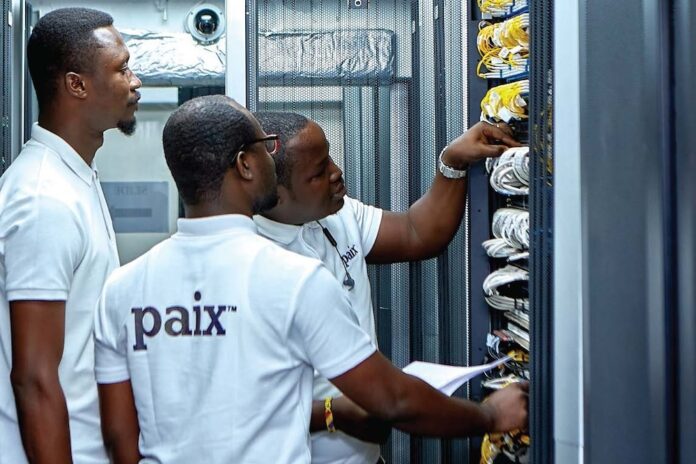The Internet traffic of Eritrea, Ethiopia and Somalia typically passes through Djibouti to reach the subsea cables traversing the Red Sea
Pan-African provider of cloud- and carrier-neutral colocation facilities, PAIX Data Centres, has announced a strategic joint venture with the Djibouti Sovereign Fund to construct a cloud and carrier-neutral data centre in Djibouti. PAIX already has facilities in Accra, Ghana, and Nairobi, Kenya, plus a number of other data centres in the pipeline.
Ten undersea cables connect to Djibouti, with further cables under construction, making the data centre a key access point for PAIX and its customers that wish to serve emerging markets in the region.
PAIX will purchase the land, buildings and data centre equipment. The facility will have about 50,000 square feet of net usable space and up to 5 MW of critical power. The first phase is expected to open in 2026. The new facility will serve as a strategic interconnection hub for ISPs, cloud providers, financial institutions, and enterprises.
“PAIX’s investment in JIB1 positions it at the crossroads of connectivity between Africa, Europe, the Middle East, and Asia,” said PAIX Data Centres CEO Wouter van Hulten. “The strong network hub that is created by the aggregation of multiple undersea cable landing points connecting to terrestrial cables makes Djibouti a highly attractive gateway.”
He added: “We have received strong interest from our connectivity, CDN, social media, and cloud customers seeking to serve the emerging markets that can be accessed by these cables. We plan to develop thriving magnetic cloud and content hubs in Djibouti.”
Raza Hasnani, managing director at investor Africa50 said: “We are excited to be supporting PAIX in its partnership with the Djibouti Sovereign Wealth Fund to develop this project, which will further enhance Djibouti’s positioning as a connectivity hub in Africa.”
“As the heart of Africa’s digital economy, Djibouti plays a strategic role in facilitating connectivity between Africa, the Middle East, and Asia, PAIX Djibouti will serve as a catalyst for digital inclusion and economic development, empowering businesses to unlock new opportunities and realise their full potential in the digital age,” said Djibouti Sovereign Fund CEO Slim Feriani.
“Recognising Djibouti’s pivotal location in Africa’s communications landscape, we eagerly anticipate the benefits this partnership between PAIX Data Centres and Djibouti Sovereign Fund will bring to the region,” said AFR-IX telecom CEO Norman Albi. “
He added: “This development fills us with great enthusiasm as we anticipate leveraging the enhanced connectivity options facilitated by this state-of-the-art data centre. Here’s to the success of this collaborative endeavour.”
Djibouti wants to be a digital hub
Pretty much all of the cables landing in the country land at Djibouti Telecom’s cable landing stations which offers cable head access, cross connect and backhaul services to the Djibouti Data Center’s Tier 3 facility, which is practically next door to the Haramous international cable landing station in Djibouti City – with a fully redundant fibre ring interconnecting all Djibouti Telecom cable landing stations.
All subsea fibre cable systems landing in Djibouti are connected to the DDC facility on diverse fibre paths. These include SMW3, EIG, EASSy, WIOCC, AAE1, SMW5, and YEMEN-Djibouti.
“Over the past fifteen years, we have invested $200 million in twelve submarine cables, making our territory an exchange and rallying point between Europe, the Middle East, Asia and Africa, thereby reinforcing connectivity and interoperability between the regions,” Djibouti Telecom international business director Mohamed Ahmed Mohamed told African Business.
“To get to Europe, all the submarine cables pass through the Red Sea, and therefore potentially through our country. By setting up here, operators can easily switch cables and thus reach different parts of the planet. Today, Djibouti Telecom serves more than 50 telecoms operators with connections to over 90 countries,” he added.



